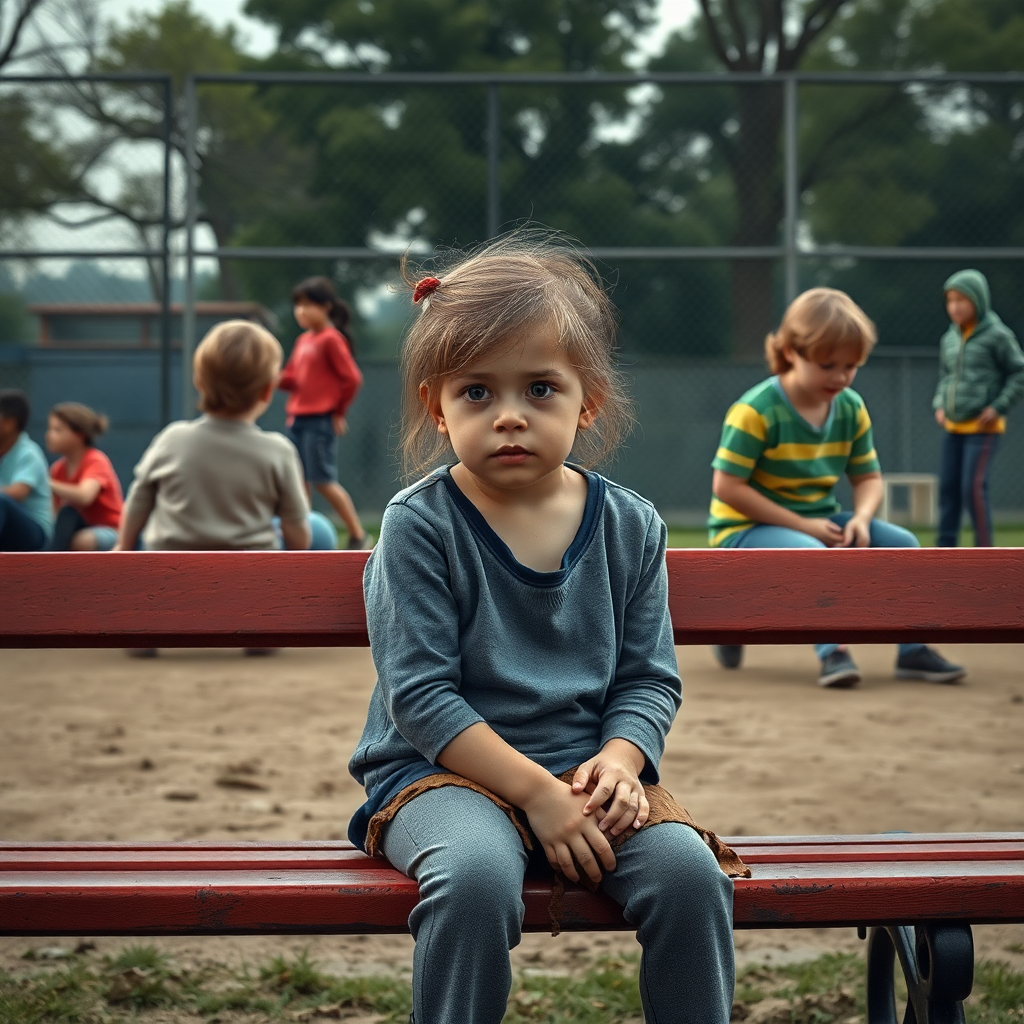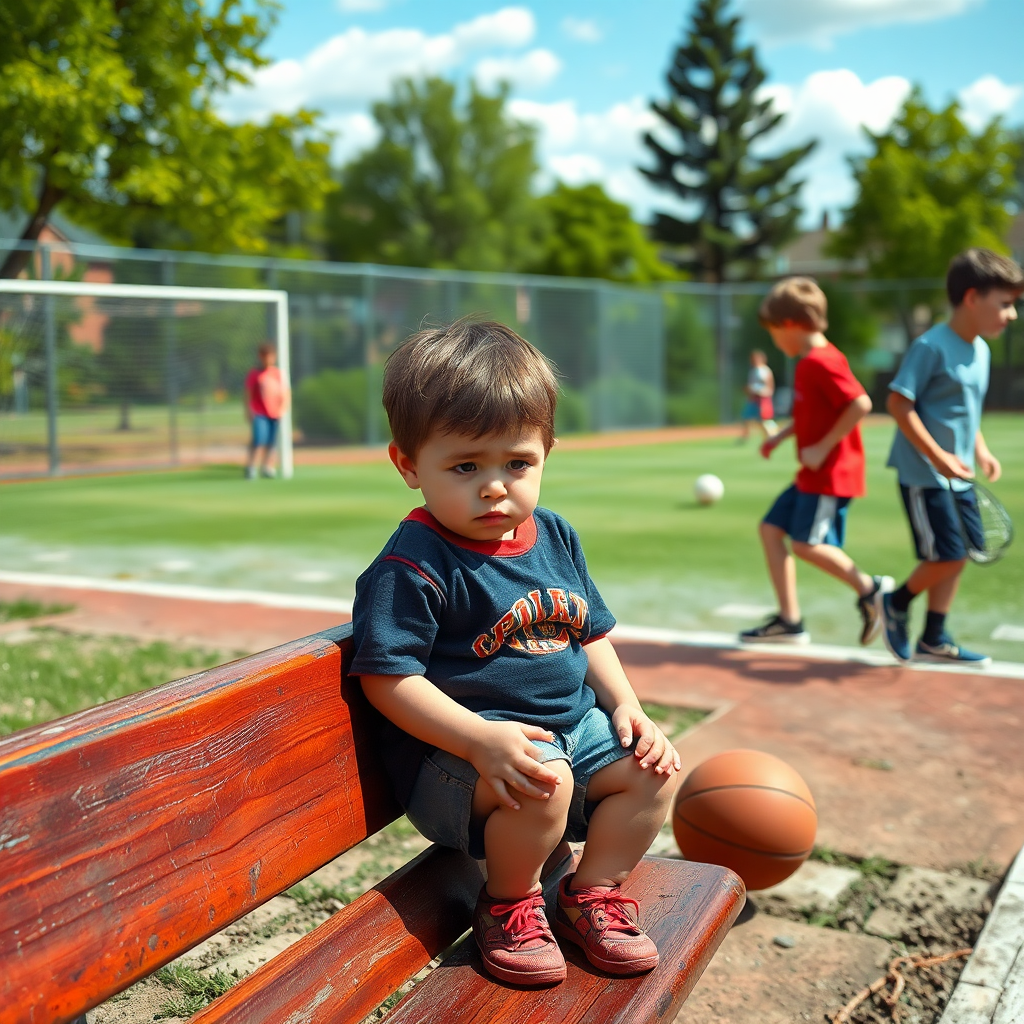Why Every Child Deserves To Play Sports No Matter Who They Are
Embracing Inclusivity in Youth Sports
Every Child’s Right to Play
Sports are an essential part of childhood, offering kids opportunities to explore their potential, make friends, and develop crucial life skills. But what happens when a child struggles in sports? Should their lack of talent exclude them from the joy and growth that sports provide?

The Importance of Sports in Child Development
Physical and Mental Health Benefits
Playing sports offers a host of physical benefits for children, such as improved fitness, motor skills, and cardiovascular health. Just as importantly, participation in sports fosters mental well-being. It reduces stress, enhances mood, and builds resilience—all critical for a child’s growth.
Social and Emotional Growth
Sports teach more than how to dribble a ball or run fast. They cultivate teamwork, communication, and conflict resolution skills. Even children who struggle athletically can develop a sense of belonging, forge friendships, and learn the value of perseverance.

The Case for Inclusion in Youth Sports
Talent Is Not the Sole Purpose
Youth sports aren’t about scouting future professionals—they’re about providing kids with experiences that encourage growth. Just because a child isn’t naturally talented doesn’t mean they can’t enjoy or benefit from playing. Their participation enriches the experience for everyone involved by promoting empathy and understanding.
Building a Fair and Inclusive Environment
Excluding a child from sports based on their skills can be deeply discouraging and isolating. Sports organizations, schools, and communities have a responsibility to create inclusive spaces where every child, regardless of ability, feels welcomed. This might involve implementing mixed-skill teams, focusing on effort rather than outcomes, or hosting games that emphasize fun over competition.
The Shame of Struggling in Sports
A Hidden Struggle
Children who struggle in sports may experience feelings of shame and humiliation, particularly if they are consistently the last to be picked for teams or feel like they are letting their peers down. This can lead to a sense of inadequacy, making sports something they dread rather than enjoy.
The Impact on Self-Worth
These negative experiences can chip away at a child’s self-esteem, making them question their value and abilities. Sports, which should be a source of joy and growth, can turn into a painful reminder of what they perceive as their shortcomings.
Turning Humiliation into Empowerment
To counter these feelings, it’s essential to create positive and affirming experiences in sports. Encouraging participation, celebrating effort, and fostering a supportive team environment can help children replace shame with pride and confidence, no matter their skill level.

The Benefits of Mixed-Skill Teams
Encouraging Peer Learning
Mixed-skill teams provide opportunities for children to learn from each other. Kids with advanced skills can mentor their peers, while those still learning can offer fresh perspectives and enthusiasm.
Enhancing Teamwork
When children of all skill levels play together, the emphasis naturally shifts from individual performance to collective success. This helps everyone focus on teamwork, collaboration, and mutual respect.
Addressing Self-Confidence in Sports
Overcoming Fear of Failure
Kids who struggle in sports often shy away due to fear of failure. By creating supportive environments, we can help children embrace challenges and view mistakes as opportunities to grow.
Celebrating Effort Over Results
When adults celebrate a child’s effort rather than their results, it reinforces a growth mindset. This encourages kids to persevere and enjoy sports, regardless of their abilities.
The Role of Coaches and Parents
Setting the Tone for Inclusion
Coaches and parents play a pivotal role in fostering inclusive sports environments. They can encourage participation, emphasize the importance of kindness, and ensure every child feels valued.
Balancing Competition with Fun
By prioritizing enjoyment over competition, adults can help children focus on the joy of playing rather than the pressure to perform. This is especially important for kids who may not excel athletically.
Creating Accessible Sports Opportunities
Expanding Community Programs
Communities can promote inclusivity by offering free or low-cost sports programs accessible to all families. These programs should welcome children of varying abilities.
Adaptive Sports Options
For children with disabilities or unique challenges, adaptive sports programs can provide tailored opportunities to participate and thrive.

A Child’s Right to Play
Every child deserves the chance to play, explore their potential, and feel like they belong. For those who may not excel in athletics, participation can still bring joy, teach valuable lessons, and inspire confidence. The right to play isn’t about scoring goals—it’s about ensuring every child can find their place in the game.
Conclusion
Sports should be a celebration of diversity, effort, and joy—not a gatekeeping of talent. When children are given the chance to participate, regardless of their abilities, they grow stronger not only as individuals but as part of a community. Let’s ensure that every child feels empowered to step onto the field, court, or rink, knowing their contributions matter and their presence is valued. After all, the right to play is a universal one, and every child deserves their moment to shine.
Join the Discussion
What do you think about the role of inclusivity in youth sports? Have you witnessed a situation where a child felt excluded or empowered through their participation?
#InclusivityInSports #YouthSportsForAll #EveryChildPlays #SportsAndGrowth #BuildingConfidence #KidsInSports #InclusiveSports #TeamworkMatters #LetKidsPlay #EmpowerThroughSports #PositiveParenting #SupportiveCoaching #GrowthMindsetForKids #SportsTeachLifeSkills #MixedSkillTeams #SportsForWellbeing #ChildDevelopment #YouthSportsInclusivity #AdaptiveSportsForKids #EffortOverResults #EndingExclusion #EmbraceDiversityInSports #EmpathyInAction #SportsAndFriendship #CelebrateEffort #KidsDeserveToPlay #CommunitySportsPrograms #EncouragingParticipation #MakingSportsFun #AllKidsWelcome







2 Comments
Comments are closed.